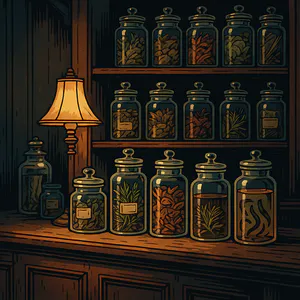Generate medicine names
More Various Name Generators- <% result.name %>
Discover all Story Shack apps
Ignite Your Imagination with Unique Medicine Names
Creating an unforgettable medicine name can elevate your project to new heights. Use these thought-provoking questions to inspire distinctive and memorable names that resonate with your audience.
- What are the primary ingredients or components of the medicine that could influence its name?
- What feelings or sensations do you want the name to evoke in potential users?
- How does the medicine work, and how can that be reflected in a creative name?
- What cultural or historical references could inspire a unique name for your medicine?
- What is the target demographic for the medicine, and how can their preferences shape the name?
Frequently Asked Questions
Explore the most common inquiries regarding the Medicine Name Generator and how it can assist you in crafting the perfect name.
How does the Medicine Name Generator work?
It utilizes a blend of linguistic patterns and thematic elements to produce unique medicine names with each click.
Can I specify the type of medicine name I want?
Currently, you can't specify; however, you can keep generating until you find a name that perfectly fits your vision.
Are the generated names unique?
The names are randomly generated; with unlimited clicks, you'll uncover a diverse array of options, though some may share similarities.
How many names can I generate?
You can generate an unlimited number of names; simply click 'Generate' as many times as you wish.
How do I save my favorite names?
You can easily copy a name by clicking on it, or use the heart icon to bookmark it for future reference.
What are good medicine names?
There's thousands of random medicine names in this generator. Here are some samples to start:
- Regoloride
- Zevanalin
- Clinstral Adaxamine
- Adodocin
- Factopatch
- Edevac
- Exenel Flexiprosyn
- Monobital
- Amphovac Tamsumicin
- Abobolazal Gammabisome
About the creator
All idea generators and writing tools on The Story Shack are carefully crafted by storyteller and developer Martin Hooijmans. During the day I work on tech solutions. In my free hours I love diving into stories, be it reading, writing, gaming, roleplaying, you name it, I probably enjoy it. The Story Shack is my way of giving back to the global storytelling community. It's a huge creative outlet where I love bringing my ideas to life. Thanks for coming by, and if you enjoyed this tool, make sure you check out a few more!











































































